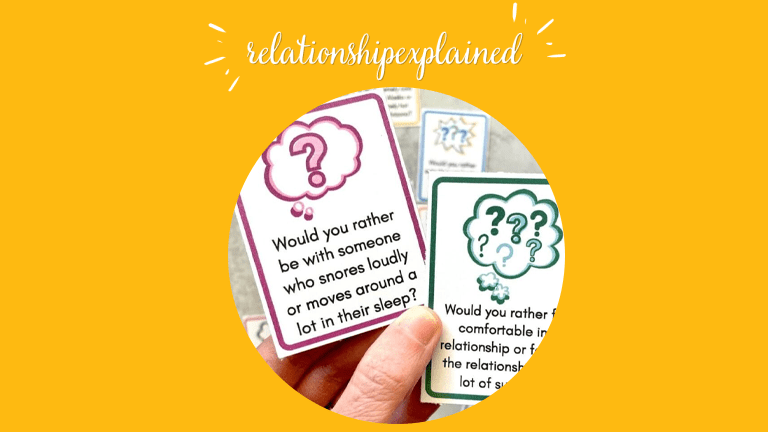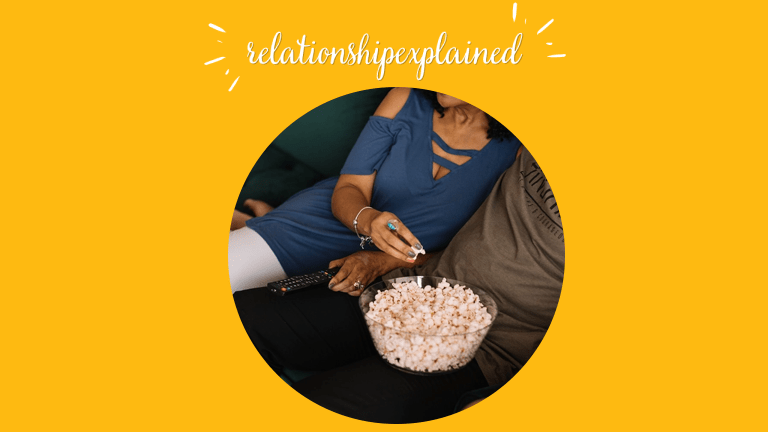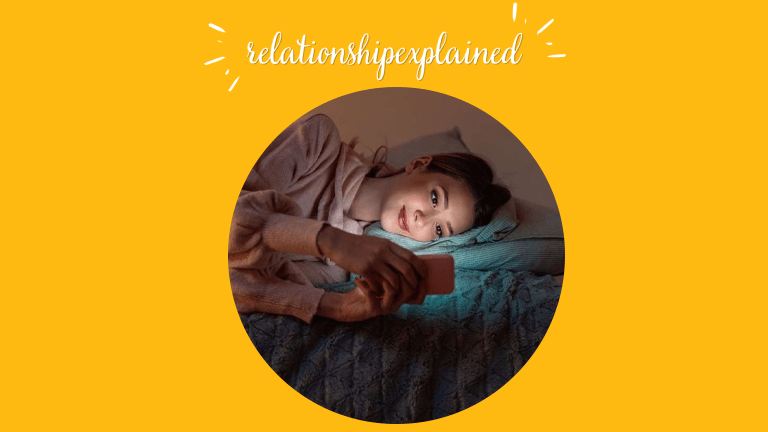Why Do I Create Drama In My Relationship?
Creating drama in relationships can stem from insecurities, communication issues, or a need for attention. It may result from past experiences or a fear of vulnerability. Addressing underlying emotions, improving communication, and fostering self-confidence can help reduce the urge to create drama and promote healthier relationships.
For some, relationships serve as a stage where the drama unfolds — enter the notorious "drama queen." Why do individuals, consciously or subconsciously, create unnecessary drama, especially when it seems counterintuitive to maintaining healthy connections?
Well, many inadvertently cause drama due to an underlying feeling of insecurity, seeking reassurance in the form of conflict.
This article dissects why some find comfort in the chaos, uncovering the roots of this behavior and exploring the subsequent impact on long-term relationships. Whether a means of control, an outlet for unaddressed emotions, or a response to deep-seated insecurities, the drama phenomenon is as complex as it is captivating.
Why Do Some Individuals Love Creating Drama In Relationships?
1. They Are Insecure And Crave Drama
In some cases, individuals feel insecure and, thus, create drama in their relationships. These individuals often harbor doubts about their self-worth, doubting whether they are truly deserving of love and affection. Consequently, they resort to manufacturing drama as a way to seek validation and reassurance from their partners.
At the core of this behavior lies an intense fear of abandonment or rejection. These individuals might have experienced past instances where they felt unloved or cast aside, possibly during childhood or previous relationships.
Drama becomes a coping mechanism against the lurking fear that they are not truly loved. By triggering conflicts, they force their partners to react, which provides temporary relief from their nagging anxieties.
Addressing this issue requires open communication and nurturing a safe environment where both partners can openly express their feelings and insecurities. Encouraging self-awareness and promoting healthy ways of seeking reassurance can help individuals break free from the cycle of creating drama to fill the void of their insecurities.
2. They Seek Excitement By Creating Unnecessary Drama
In certain instances, there are individuals who find life devoid of excitement to be strangely mundane and unsettling. The prospect of trudging through the same page day after day evokes a sense of unfulfillment.
It's within this pursuit of breaking free that they momentarily step out of their comfort zones, albeit often at the expense of the partnership's stability.
While seeking excitement, they inadvertently set the stage for a potentially messy situation. In some cases, this cycle of creating drama becomes a recurring theme in relationships, only to be carried forward to the next relationship should the current one reach its conclusion.
Understanding the psychology behind this behavior reveals that it isn't necessarily a conscious effort to wreak havoc. Rather it’s a longing for experiences that stand in stark contrast to the anticipated predictability of life.
3. They Are Projecting Unresolved Personal Issues
Individuals harboring unresolved personal issues often unconsciously project their emotional baggage onto their relationships. This projection becomes a channel through which they inadvertently introduce drama.
These individuals might be entirely unaware that their unresolved issues are driving their actions. Yet, their inability to avoid drama stems from a subconscious need to grapple with these issues in a context they feel safe. In a way, they're attempting to rewrite history by reliving and reshaping those unresolved narratives in their current relationship.
Their past experiences, family dynamics, or former relationships may have left indelible imprints that influence how they interpret situations and interactions. Consequently, they may perceive threats or conflicts where none exist, leading them to react dramatically and exacerbating tensions.
In order to escape this cycle of recreating past scenarios, individuals must realize that their unresolved issues need a different outlet for resolution.
4. They Seek Attention From Their Partner
Some people may cause drama due to their compelling need for attention. They harbor a profound fear of being disregarded or fading into the background.
This behavior isn't merely a spontaneous decision; it arises from a deeply ingrained sense of inadequacy and insecurity. For them, the fear of being overlooked or forgotten is distressing, and the only way they can find relief is by commanding attention through dramatic actions.
The compulsion to seek attention via dramatic means can be likened to a survival mechanism. They believe that by causing a stir, they can secure their partner's engagement, thereby alleviating their profound fear of being abandoned. This emotional pattern is further exacerbated if they experienced neglect or felt unheard in their past, possibly during their formative years with their parents.
Breaking free from the cycle of creating drama for attention necessitates recognizing the roots of this behavior and cultivating healthier coping mechanisms. As they come to terms with their feelings of inadequacy, they can start building self-esteem independently of external validation.
5. They Are Unable To Communicate Efficiently
Sometimes individuals resort to dramatic behavior due to an inability to communicate their feelings openly and honestly. This may stem from a lack of developed communication skills or a deep-seated fear of vulnerability. Instead of engaging in direct conversations about their emotions, they unconsciously create drama to indirectly convey their feelings.
At times, they believe that expressing their emotions in a straightforward manner would lead to undesirable outcomes, such as conflict or rejection. They might erroneously view drama as a less intimidating way of getting their point across. However, this approach often backfires, leading to misunderstandings, unnecessary conflicts, and further emotional turmoil.
Their challenge lies in recognizing that the drama they create does not serve their intended purpose. Instead of facilitating better understanding, it muddles the communication channels.
By acquiring effective communication tools, they can navigate emotional conversations more adeptly. This involves articulating their feelings, needs, and concerns in a constructive manner, fostering a space for their partner to reciprocate with understanding.
6. They Are Disappointed Due To Unrealistic Expectations
In romantic relationships, harboring unrealistic expectations can cast a shadow over the dynamics between partners.
When individuals construct idealized scenarios in their minds, anticipating their partners to conform to these ideals, they set the stage for potential disappointment. As reality inevitably diverges from these lofty projections, a void emerges between expectations and actual experiences. To navigate this void, some individuals resort to creating drama as a coping mechanism to vent their frustration and unhappiness.
The discrepancy between what they imagined their relationship to be and what it has become may trigger feelings of anger, sadness, or inadequacy. Unable to communicate these emotions in a healthy and direct manner, they may instinctively resort to causing drama.
Understanding and mitigating this pattern requires a shift in perspective. Rather than relying on drama to bridge the gap between reality and expectations, these individuals can benefit from cultivating open dialogue with their partners.
7. They Want To Control And Manipulate Their Partner
For some individuals, relationships are arenas in which they assert control and dominance. The desire for power can manifest in the form of creating drama to manipulate the course of events. These individuals, often driven by a fear of being rendered powerless in the relationship, orchestrate turmoil to ensure their partners conform to their wishes.
This need for control emerges from a complex interplay of personal history, fears, and insecurities. They may have encountered situations in the past that left them feeling powerless, and as a result, they seek to reclaim a sense of agency through controlling behaviors. Their manipulation tactics might range from emotional manipulation to provoking conflicts to maintain a sense of dominance.
By causing drama, these individuals create an atmosphere where their partners are left treading carefully, unsure of how to navigate the turbulent waters. This calculated chaos positions them as puppet masters, controlling the emotional climate and dynamics within the relationship. The underlying motivation behind this manipulative behavior is rooted in their belief that control equates to security and influence.
Breaking this cycle requires introspection and a willingness to relinquish the need for constant control. Recognizing the toxicity of manipulation and acknowledging the potential for genuine partnership and collaboration can pave the way for healthier interactions.
8. They Are Addicted To Causing Drama
For some individuals, drama becomes an intoxicating elixir, infusing their lives with a potent blend of emotions and energy. This addictive pull often stems from the adrenaline rush that accompanies chaotic situations. The surge of emotions and heightened state of alertness provide a temporary escape from the mundane routines of life.
Much like an addiction, the allure of drama can cloud rational judgment. Individuals caught in this cycle might unconsciously create drama to satiate their craving for emotional turbulence.
This compulsion to create drama might emerge without clear intent; it's as if they're navigating a path paved by their subconscious need for that rush. Breaking free from this cycle necessitates a conscious effort to recognize the patterns and triggers that drive this behavior. Cultivating healthier outlets for emotional stimulation, such as pursuing hobbies or engaging in meaningful conversations, can provide an alternative to the adrenaline rush of drama.
9. They Are Influenced By Society Or Media
In a world saturated with media portrayals of relationships, some individuals fall into the trap of modeling their behavior after what they see on screen or perceive from societal norms.
The belief that a dramatic relationship is a passionate one can lead to a cycle of drama. These individuals might feel compelled to replicate the scenarios they've witnessed, assuming that drama is a natural and expected aspect of a partnership. This mistaken perception often results in a whirlwind of conflicts, misunderstandings, and emotional turmoil that mirrors the dramatic scenes they've consumed from the media.
To break free from this cycle, individuals must recognize the distinction between reel and reality. A healthy relationship is built on mutual respect, open communication, and genuine understanding rather than the dramatic rollercoasters seen on screen.
10. They Are Unable To Deal With Conflict
Conflicts in a relationship are inevitable and serve as opportunities for growth and resolution.
However, some individuals struggle with effectively managing and resolving conflicts. Rather than addressing underlying issues head-on, they resort to creating drama as an indirect way of dealing with disagreements.
This behavior often emerges from a fear of confrontation and vulnerability. Engaging in direct conversations about feelings or differences might appear daunting, leading them to believe that drama is a more palatable way to express themselves. Unfortunately, this approach can exacerbate tensions, creating a volatile atmosphere within the relationship.
How To Deal With A Dramatic Partner?
1. Communication
Talk to your partner about their dramatic behavior and its impact on the relationship. Explain how it makes you feel and listen to their perspective as well.
2. Set Boundaries
Clearly define your boundaries and let your partner know what behavior is unacceptable. This can help establish a more respectful and peaceful environment.
3. Avoid Enabling
Refrain from getting drawn into unnecessary drama. Avoid reacting in the same dramatic way, as this can escalate the situation.
4. Provide Reassurance
Make your partner feel loved and secure in the relationship. Reassure them that their worth isn't tied to creating drama.
5. Encourage Self-Awareness
Help your partner recognize their patterns and triggers for drama. Encourage self-reflection to understand the underlying causes.
6. Suggest And Seek Help
If the dramatic behavior is causing significant distress, anxiety, or pain, suggest seeking therapy or counseling to address deeper issues. And if you’re a victim of a toxic relationship, don’t hesitate to seek support from family and friends. Share what’s happening in your life and ask them to step into the matter if all else fails.
7. Stay Calm
Keep your own emotions in check when dealing with their dramatic episodes. Responding calmly can help diffuse tension.
8. Lead By Example
Model calm and respectful behavior. Show how conflicts can be resolved without resorting to drama.
9. Stay Realistic And Celebrate Positive Changes
Understand that change takes time, and progress may be slow. Be patient and supportive in the process. Acknowledge and appreciate any efforts your partner makes to reduce their dramatic behavior.
Final Words
In relationships, the urge to create drama can lead us astray in the same way we find comfort in the familiar. Yet, realizing that peace isn't supposed to be a stranger in our lives is a pivotal moment.
By watching our actions honestly, we can shed light on the truth: drama weaved from misguided words is meant to bring excitement, but it often brings a mess we didn't expect.
So, let's break free from the cycle, shatter the supposed norms perpetuated by movies, and embrace the honesty and clarity that our relationships deserve. In doing so, we'll discover a world where the true magic doesn't happen in the chaos we've created but in the moments of genuine connection and understanding.













